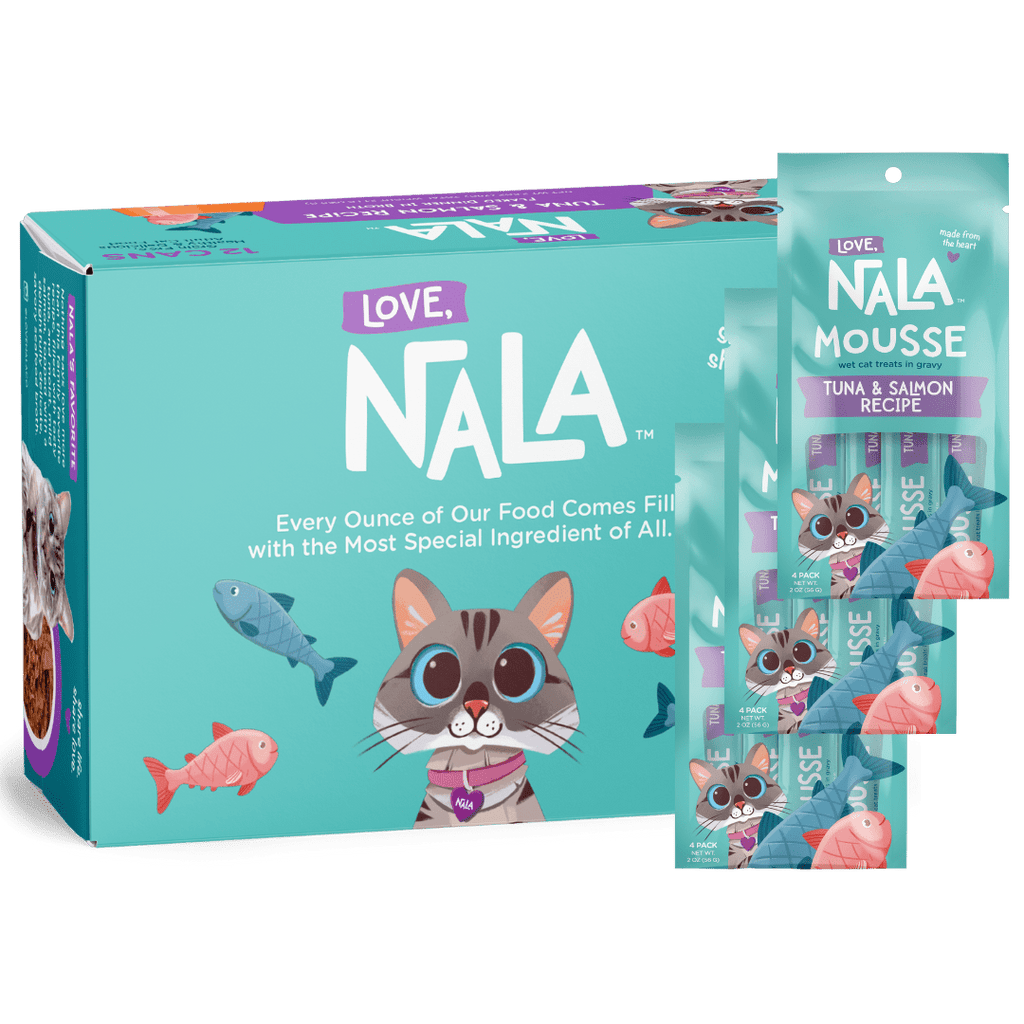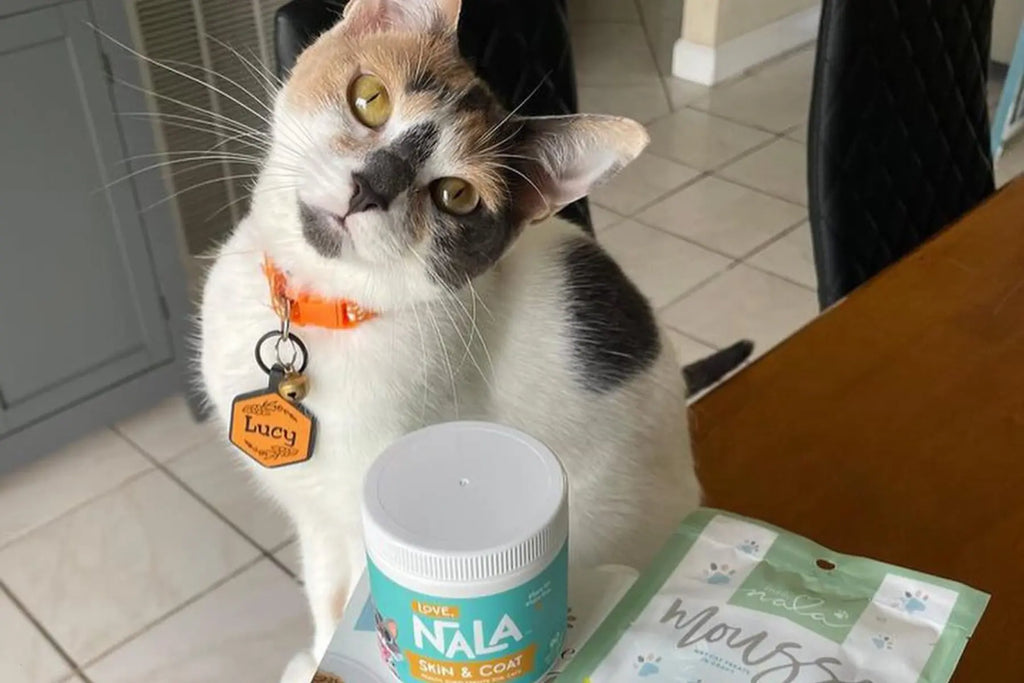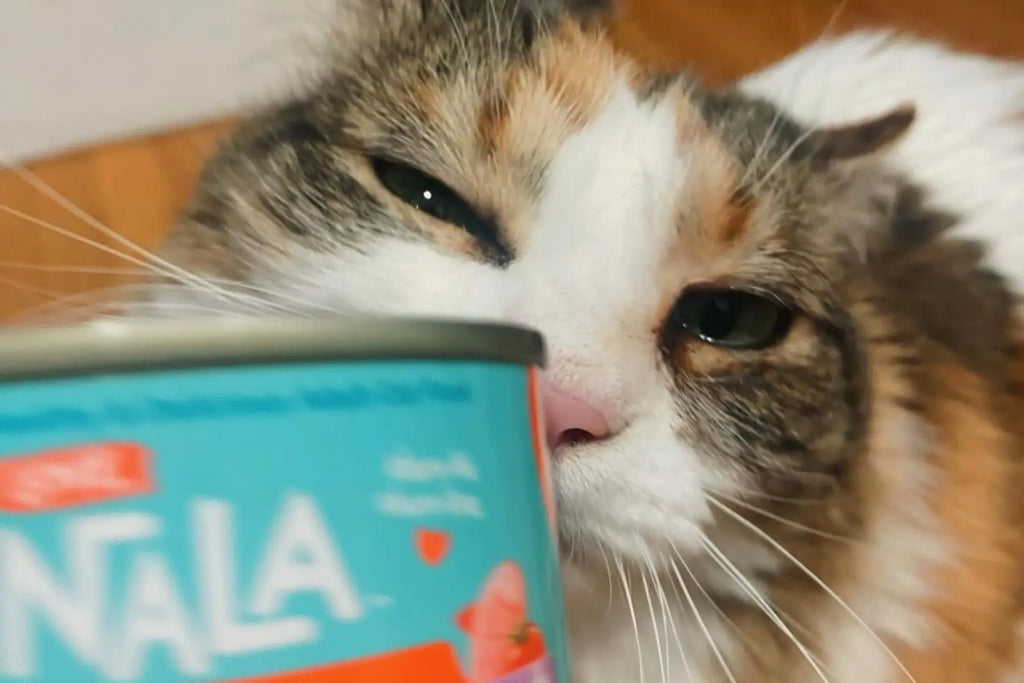As cat owners, we want to provide our feline friends with the best nutrition possible. One important aspect of cat nutrition is the amount and quality of protein in their diet. In this post, we'll explore the benefits of a high-protein diet for cats, and provide tips for choosing the best high-protein cat food, supplements, and treats.

Why Cats Need Protein
Protein is an essential nutrient for cats, playing a crucial role in maintaining healthy body tissues, organs, and systems. It's important to choose high-quality protein sources for your cat's diet, such as those found in meat, poultry, and fish.
The Importance of High-Quality Protein Sources
High-quality protein sources are essential for providing the right balance of amino acids that cats need for optimal health. Look for cat food that lists a high-quality source of animal protein as the first ingredient, such as chicken or salmon.
How Much Protein Cats Need at Different Life Stages
Understanding the protein requirements of cats is crucial for their health and well-being. These requirements vary significantly across different stages of their life and are also influenced by their size and how much they move or play. A detailed look into the protein needs of cats reveals the following:
- Adult Cats: For adult felines, a balanced diet that consists of 25% to 30% protein is optimal. This range is essential for maintaining muscle mass, supporting the immune system, and ensuring that their metabolic processes function correctly. Adult cats, being carnivores, rely on protein as a primary energy source. The protein in their diet helps in the repair and maintenance of body tissues and also plays a crucial role in the production of antibodies, enzymes, and hormones. Considering an adult cat's lifestyle, which may range from sedentary to moderately active, this percentage of protein helps to keep them in good health without leading to unnecessary weight gain.
- Kittens: Kittens have a significantly higher need for protein in their diets, necessitating a richer protein percentage to support their rapid growth and development. During this critical phase, protein contributes to the development of healthy muscles, organs, and tissues. It also aids in the proper formation of antibodies, ensuring a robust immune system. Kittens are in a constant state of growth and development until they reach adulthood, and their energetic playfulness further increases their protein needs. A high-protein diet is not just a requirement but a necessity for kittens to lay the foundation for a healthy and vigorous life.
These guidelines serve as a foundation for cat owners to understand the nutritional needs of their feline companions. Whether a cat spends its days napping in the sun or exploring every nook and cranny of its home, their diet should be tailored to support their lifestyle and nutritional needs, ensuring they remain happy, healthy, and vibrant throughout all stages of their life.
Benefits of a High Protein Diet for Cats
Improved Muscle Mass & Strength
Protein is essential for building and maintaining muscle mass and strength. High-protein cat food can help keep your cat's muscles healthy and strong, which can be especially important for older cats or those with health conditions.
Increased Energy & Vitality
A diet that's high in protein can provide your cat with the energy and vitality they need to be active and healthy. Cats that eat a high-protein diet are often more playful and engaged. To further enhance your cat's playfulness and engagement, consider incorporating interactive toys that stimulate their natural hunting instincts. Toys that mimic the movement of prey, such as feather wands or laser pointers, can encourage your cat to leap, pounce, and chase, providing them with both physical and mental exercise. Puzzle feeders that require your cat to solve a challenge to access their food can also stimulate their intellect and mimic the problem-solving skills they would use in the wild. By combining a high-protein diet with engaging toys and activities, you can help your cat lead a more active life.
Better Digestion & Nutrient Absorption
A high-protein diet can promote better digestion and nutrient absorption, which can be especially important for cats with sensitive stomachs or digestive issues. Cats that eat a high-protein diet often have firmer stools and less digestive upset.
Healthier Skin and Coat
Ensuring that our feline companions consume a diet rich in protein is crucial for maintaining not just their overall health, but specifically the health of their skin and the quality of their coat. The skin, the largest organ of the body, acts as a protective barrier against environmental hazards and pathogens. It also plays a significant role in hydration and thermoregulation. The health of a cat's skin is directly influenced by their diet; inadequate protein intake can lead to dry, itchy skin and may impair the skin's ability to heal and regenerate. This, in turn, affects the cat's comfort and susceptibility to skin infections and diseases.
Moreover, a cat's coat is often a reflection of its nutritional status. A diet rich in essential proteins supports the growth of a dense, soft, and shiny coat, whereas a deficiency can result in dull, coarse, and brittle fur. Proteins supply the necessary amino acids required for the synthesis of keratin, the protein that hair is primarily made of. Additionally, certain proteins in the diet can influence the production of natural oils in the skin, which lubricate and protect both the skin and hair follicles, ensuring the coat remains glossy and smooth.
Reduced Risk of Obesity & Diabetes
Feeding your cat a high-protein diet can help reduce the risk of obesity and diabetes, as protein can help cats feel full and satisfied. They promote a more stable blood glucose level. In cats, as in humans, spikes in blood sugar are controlled by insulin. Diets heavy in carbohydrates can lead to rapid increases in blood sugar, requiring the pancreas to release more insulin. Over time, this can lead to insulin resistance, a hallmark of Type 2 diabetes. By contrast, protein has a minimal effect on blood glucose levels, helping to keep them within a normal range and reducing the strain on the cat's insulin-regulating mechanisms.

Choosing the Best High Protein Cat Food
Reading Labels & Choosing a High-Quality Cat Food
Selecting the right cat food is paramount to your pet's health and longevity. This involves careful consideration of the ingredients to ensure they meet the nutritional needs of your feline companion. Here’s an expanded view of the key considerations:
- Avoid Fillers: Fillers like corn, wheat, and soy are often used to bulk up cat food but offer minimal nutritional benefits to your cat. They can be hard for cats to digest and may lead to unnecessary weight gain or other health issues like allergies and sensitivities. A diet low in fillers and high in natural, beneficial ingredients supports better digestive health and energy levels.
- Say No to By-Products: While by-products can sometimes provide nutrients, they are often of lower quality than whole meats. Foods that specify the type of meat rather than just stating "meat by-products" ensure you know exactly what you're feeding your cat. High-quality cat foods will be transparent about their protein sources, offering greater nutritional value and safety for your pet.
- Artificial Additives: Artificial colors, flavors, or preservatives are included in some cat foods to enhance appearance and taste or extend shelf life. However, these chemicals can be harmful to cats, potentially leading to allergic reactions or long-term health problems. Opting for cat food without these additives is a step towards ensuring a healthier diet for your feline friend.
Feeding your cat a diet that adheres strictly to these guidelines is not just about fulfilling their basic needs but about enhancing their quality of life. A well-considered diet supports your cat's health, vitality, and happiness, allowing them to lead a full and active life.
Tips for Selecting the Best High-Protein Cat Food
Choose a cat food that's appropriate for your cat's life stage, and consider their individual nutritional needs. It's also important to monitor your cat's response to the food and make adjustments as needed.
High Protein Supplements & Treats for Cats
In addition to high-protein cat food, there are also supplements and treats available that can help boost your cat's protein intake.
The Role of High Protein Supplements in a Cat's Diet
High protein supplements for cats can be a good option for cats that need extra protein in their diet. Incorporating supplements such as freeze-dried or dehydrated meat into your cat's diet offers a convenient and effective method to enhance their protein intake. These supplements are not only packed with high-quality protein but also retain much of the nutritional integrity of fresh meat due to their preservation processes. Freeze-drying, for example, removes moisture from the meat under low temperatures and vacuum pressure, preserving the protein content along with essential vitamins and minerals without the need for artificial preservatives. Similarly, dehydrated meat, which is gently dried at a low temperature, maintains a high level of nutrients.
The Benefits of High-Protein Cat Treats
High-protein cat treats can be a great way to give your cat a little extra protein and keep them happy and satisfied. Look for treats that contain high-quality protein sources, such as freeze-dried chicken or salmon.
How to Switch Your Cat to a High-Protein Diet
The Importance of a Gradual Transition
Cats are known for their particular eating habits and sensitivity to changes in their diet, making sudden shifts potentially stressful or even harmful. To mitigate these risks, it's recommended that the transition to new food be spread out over several days or weeks, depending on the individual cat's adaptability and digestive sensitivity.
The process typically involves mixing a small amount of the new food with the current diet, gradually increasing the proportion of new food while decreasing the old food over the transition period. This method allows the cat's digestive system to adjust to the new ingredients and nutrient levels, reducing the likelihood of gastrointestinal upset such as diarrhea or vomiting. It also provides an opportunity for the cat to become accustomed to the taste and texture of the new food, which is crucial for finicky eaters. A slow transition helps mitigate stress associated with change, promoting a sense of security and routine for your cat.

Incorporating a high-protein diet into your cat's daily regimen can be transformative, contributing to enhanced muscle mass, elevated energy levels, and overall vitality. Such a diet also promotes optimal digestion and nutrient absorption, ensuring that your cat benefits fully from each meal. Furthermore, the impact of high-quality protein extends to the maintenance of healthier skin and a lustrous coat, signifying internal wellness. Selecting the finest high-protein cat foods, supplements, and treats is essential in providing your feline companion with the vital protein they require to flourish throughout their life. By adhering to these nutritional guidelines and vigilantly observing your cat's reaction to dietary adjustments, you play a crucial role in fostering their health and well-being.




















